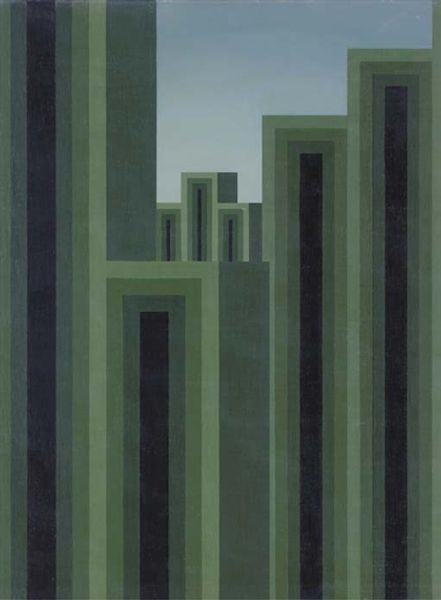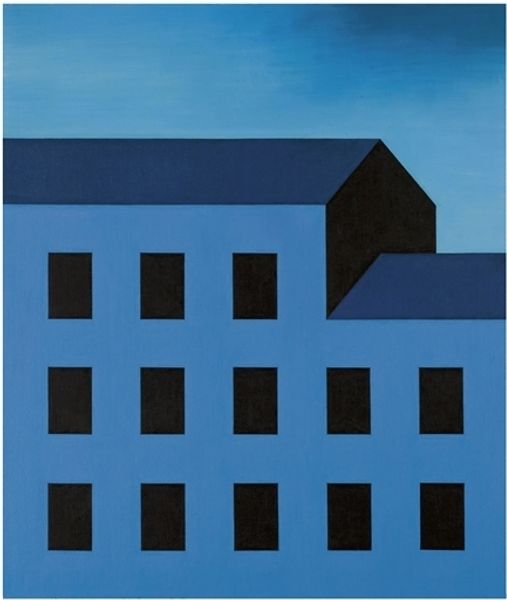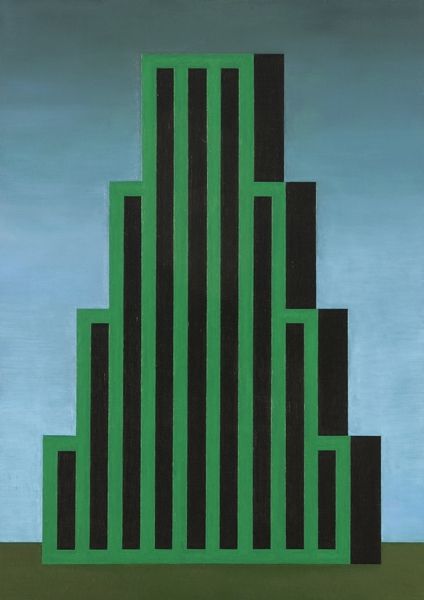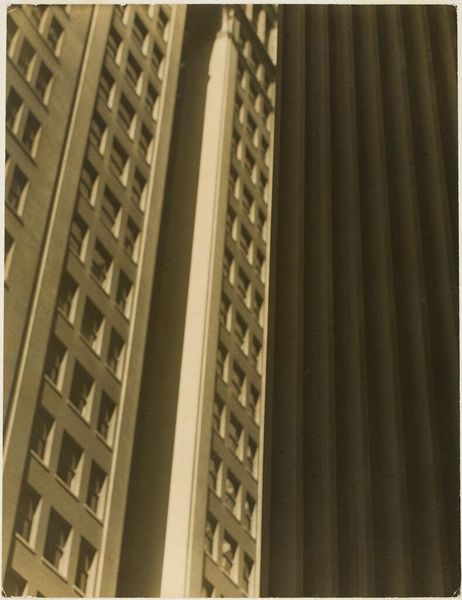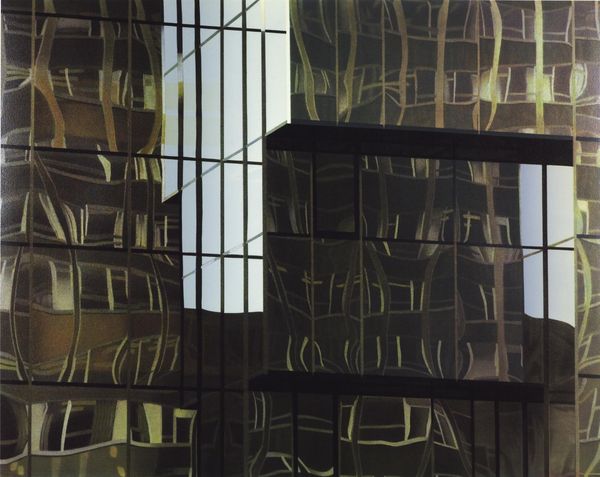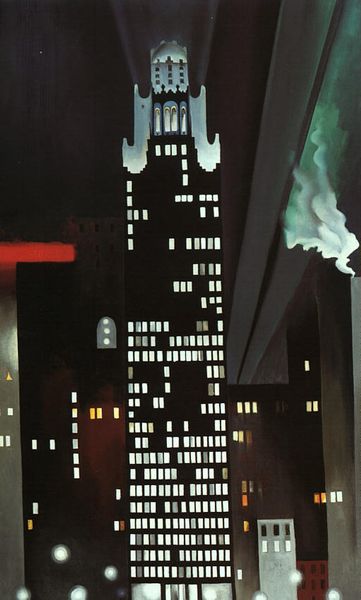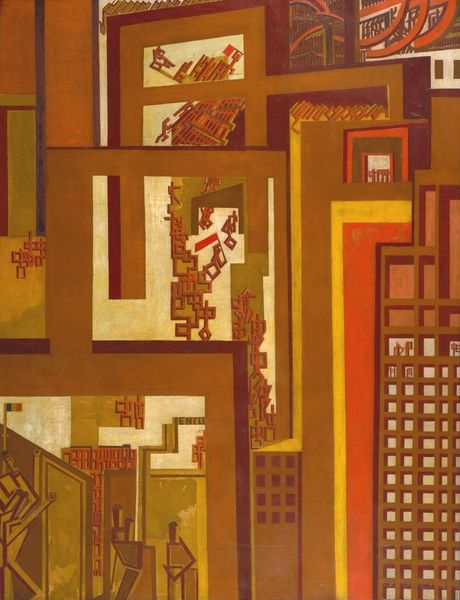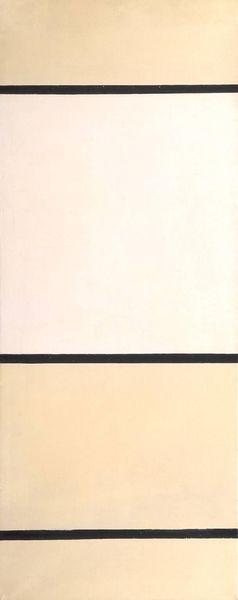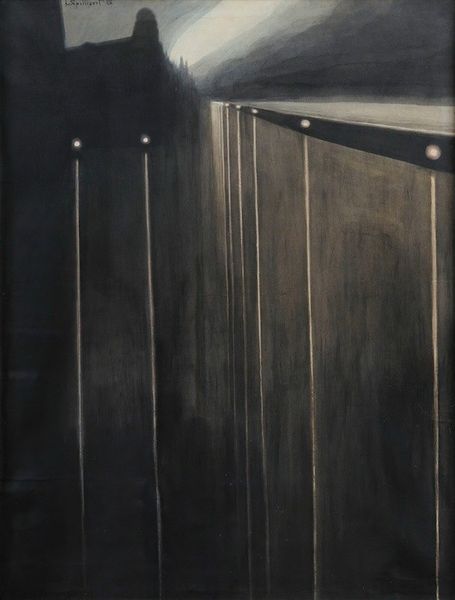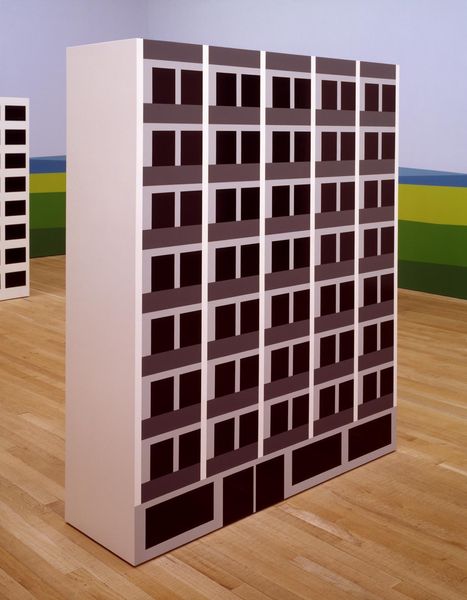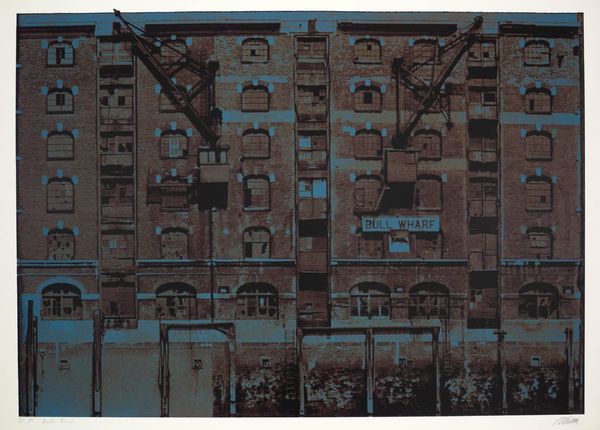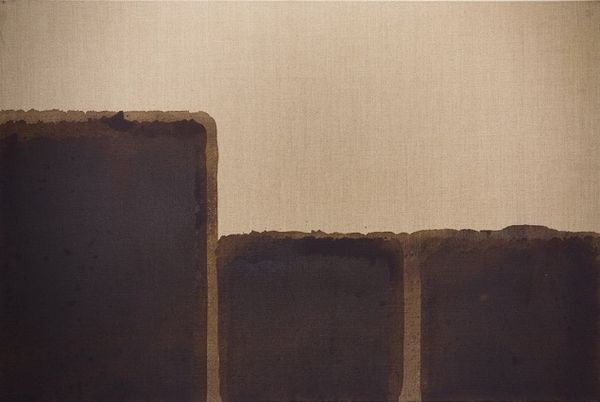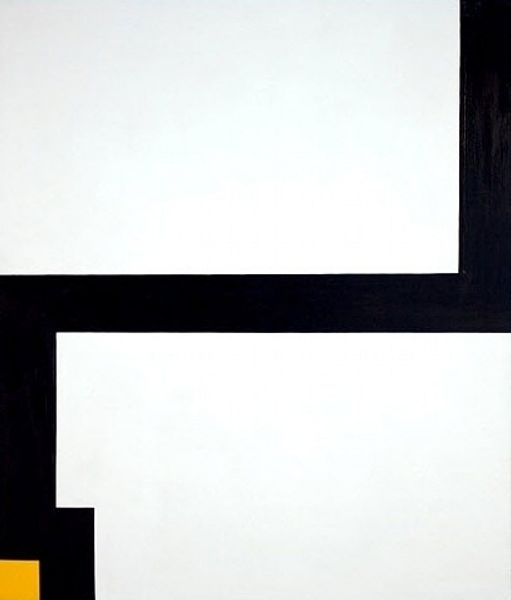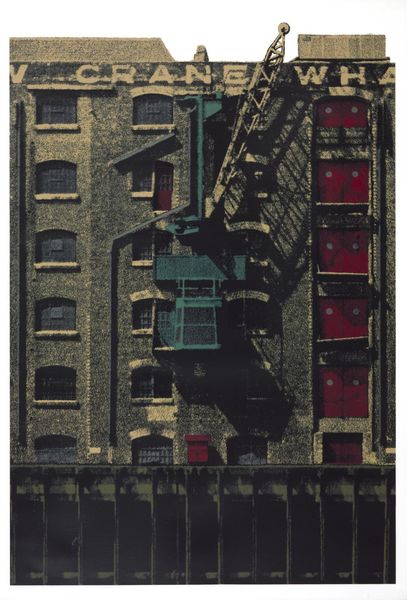
painting
#
painting
#
geometric
#
abstraction
#
line
#
cityscape
#
modernism
#
monochrome
Copyright: Roberto Aizenberg,Fair Use
Curator: Today, we're looking at a piece by Roberto Aizenberg entitled "Painting," created in 1974. Editor: Stark. That's the first word that comes to mind. It's so rigidly geometric; those repetitive dark windows are almost oppressive. Curator: Aizenberg's work, while visually striking, is often interpreted through the lens of the socio-political climate of Argentina during the 1970s. The period was marked by political repression, and Aizenberg himself faced persecution. This painting can be seen as reflecting a sense of confinement and the silencing of voices. Editor: Yes, the monochrome palette contributes to the sense of severity. But notice how the planes of the building subtly shift in color, almost imperceptibly darkening. It’s a masterful play with limited values that create an almost palpable sense of depth. And the composition— the towering structure almost filling the frame—amplifies the feeling of something looming. Curator: The geometric, almost architectural, forms are prevalent throughout his work. It's as if the buildings themselves become symbols of institutional power and control. During the late 1950's, there was an effort to modernize Argentina, and that translated into an urban revolution where Aizenberg's paintings explore the psychological impact of this rapidly changing world. Editor: Absolutely. However, I can also see a clear homage to early modernism. There's the undeniable influence of the Bauhaus aesthetic – the celebration of geometry, the clean lines... It almost seems to question the very nature of modernist utopia. Curator: Precisely! The modernist dream, once a beacon of progress, became associated with structures of control. Editor: So, ultimately, we have a painting that uses the language of form and color to reveal layers of social, and psychological implications, making the viewer feel uneasy and uncertain. Curator: I think that's a fitting assessment, revealing not only Aizenberg’s inner struggle, but Argentina's society.
Comments
No comments
Be the first to comment and join the conversation on the ultimate creative platform.
